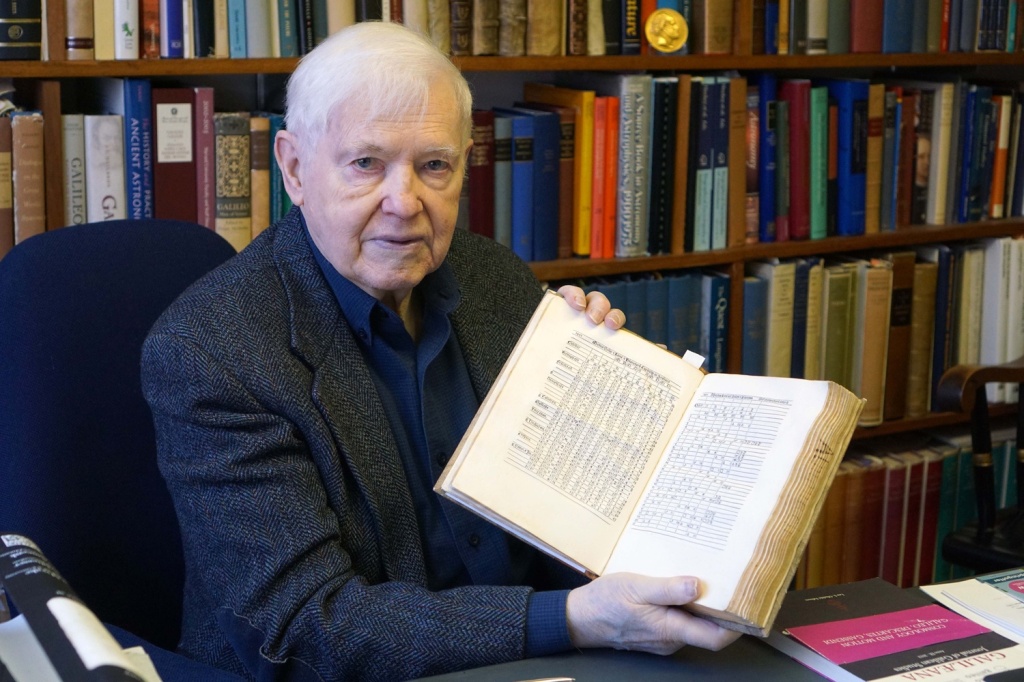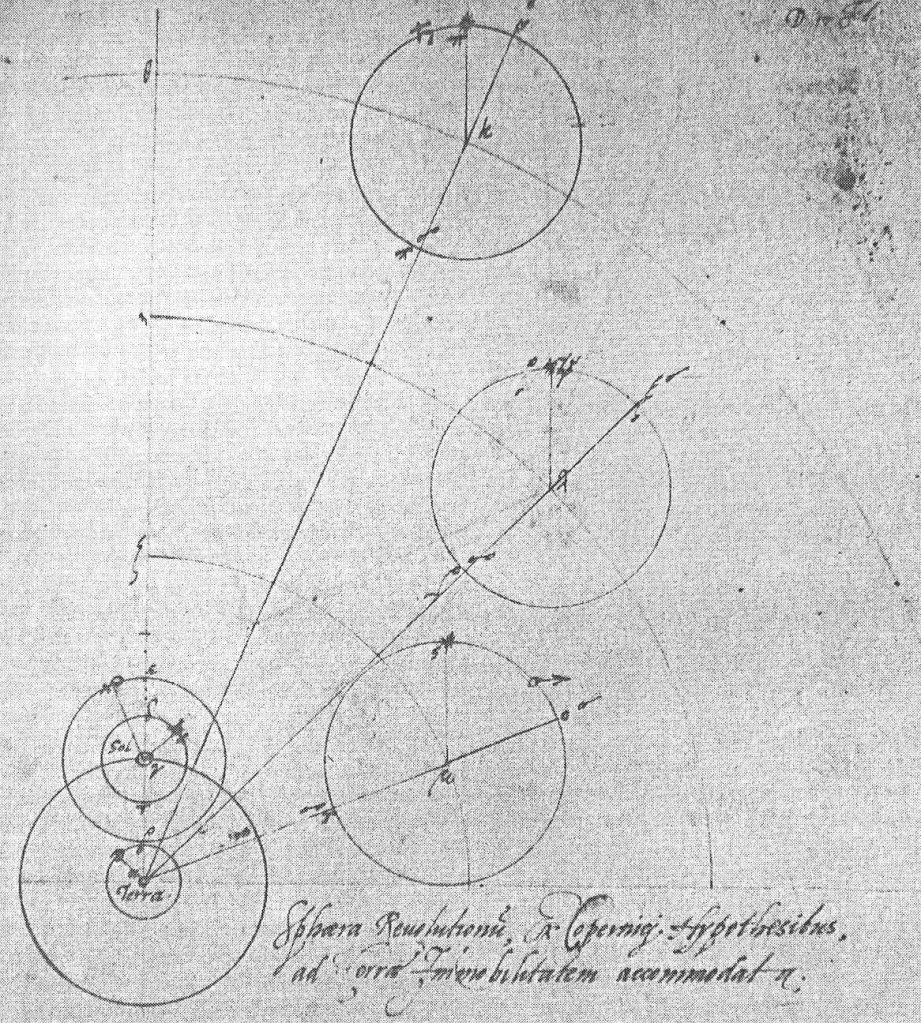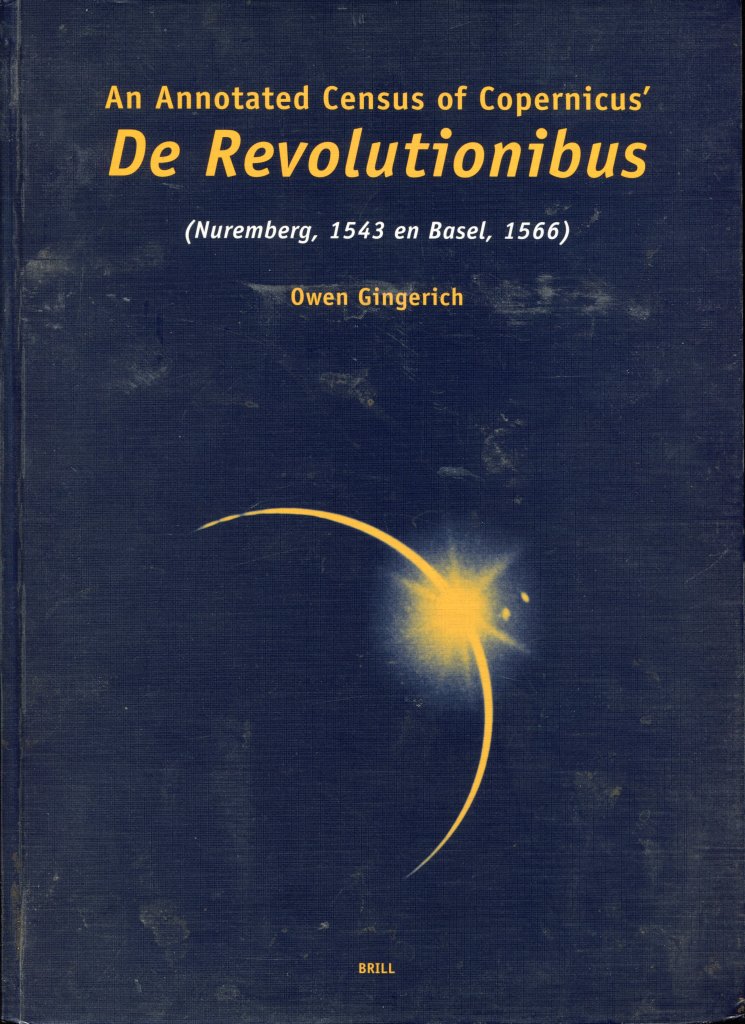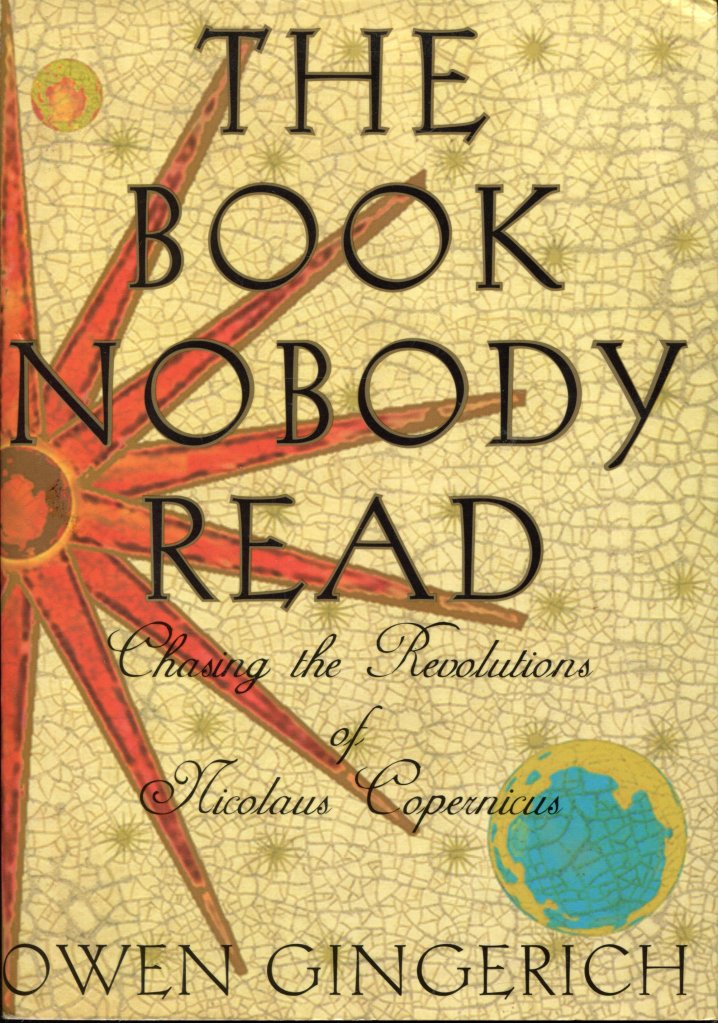When I first started delving into the history of astronomy there was a pantheon of the great historians, who ruled over the discipline far above us mere mortals–for example, I. Bernhard Cohen, Edward Rosen, Robert S. Westman, Richard S. Westfall, and others.
One of those giants, Owen Gingerich, died 28 May at the grand old age of 93. Gingerich was for many years a professor for both astronomy and the history of science at Harvard University.

His main area of research was the history of astronomy of the Early Modern Period, especially, but not exclusively, Copernicus and Kepler. Anybody, who reads this blog, will know that this in one of my key areas of interest, so over the years I have read many of Gingerich’s papers and books, several of the latter adorning my bookshelves. I learnt a great deal reading Gingerich. Just to give one example, I first learnt about the itinerant German mathematician, Paul Wittich (c. 1546–1586), who played a significant role in the evolution of the Tychonic geo-heliocentric model of the cosmos, as well as the distribution of prosthaphaeresis, a trigonometrical forerunner of logarithms, through a joint paper by Gingerich & Westman.[1]
Gingerich first ran across Wittich’s work on geo-heliocentric models in the marginalia of his copy of Copernicus’ De revolutionibus.

Having been inspired by the marginalia in Erasmus Reinhold’s personal copy of De revolutionibus, Gingerich began a thirty-year-long survey of all the extant copies of the 1st and 2nd editions of De revolutionibus that he could find, recording provenance, marginalia, censorship etc.
The results of this odyssey were published in his An Annotated Census of Copernicus’ De Revolutionibus (Nuremberg 1543 and Basel 1566) (Brill, 2002).

It is a monumental work of scholarship and an invaluable asset for all scholars of the history of Early Modern astronomy. It, of course, cost a fortune and was way outside of my book buying budget. However, one Sunday I walked past one of Erlangen’s university bookshops and espied a copy of the Census in their shop window on offer at a ridiculously low price. I returned to the shop when it was open and inquired why it was so cheap. The book seller explained that it had been ordered by a professor on approval and had been damaged and could not be returned. I didn’t hesitate and am as a result a proud owner of this unique volume. I have examined it many times over the years and still haven’t discovered the supposed damage. He also produced a much shorter, but equally useful, survey of the surviving copies of Peter Apian’s Astronomicum Caesareum.
Gingerich also wrote a highly entertaining collection of essays, documenting his adventures whilst researching his Copernicus Census, The Book Nobody Read: Chasing the Revolutions of Nicolaus Copernicus (Walker, 2004).

I do not have heroes, but Owen Gingerich was very much one of my go to sources for accurate and in-depth scholarship on the history of astronomy. Imagine my surprise, or better said shock, when he turned up to comment on my humble blog. He didn’t use the blog’s comments column but sent me an email. When I opened up my email account and saw that first email, I nearly fell off my chair. I opened it with trepidation, it was a very warm and friendly email pointing out an error in my most recent blog post. Although they remained few and far between, it was not the only email that I received from him and not always negative. He particularly praised my post on Johannes Petreius (c. 1497–1550), the publisher of De revolutionibus, saying that he had learned something new from it.
Yesterday the history of astronomy community lost one of its greats and the tributes are pouring in all over the Internet. Gingerich was, with justification, highly respected and, as everyone is reporting a generous and warm gentleman scholar.
[1] Gingerich & Westman, The Wittich Connection, Transactions of the American Philosophical Society, Vol 78, Part 7, 1988